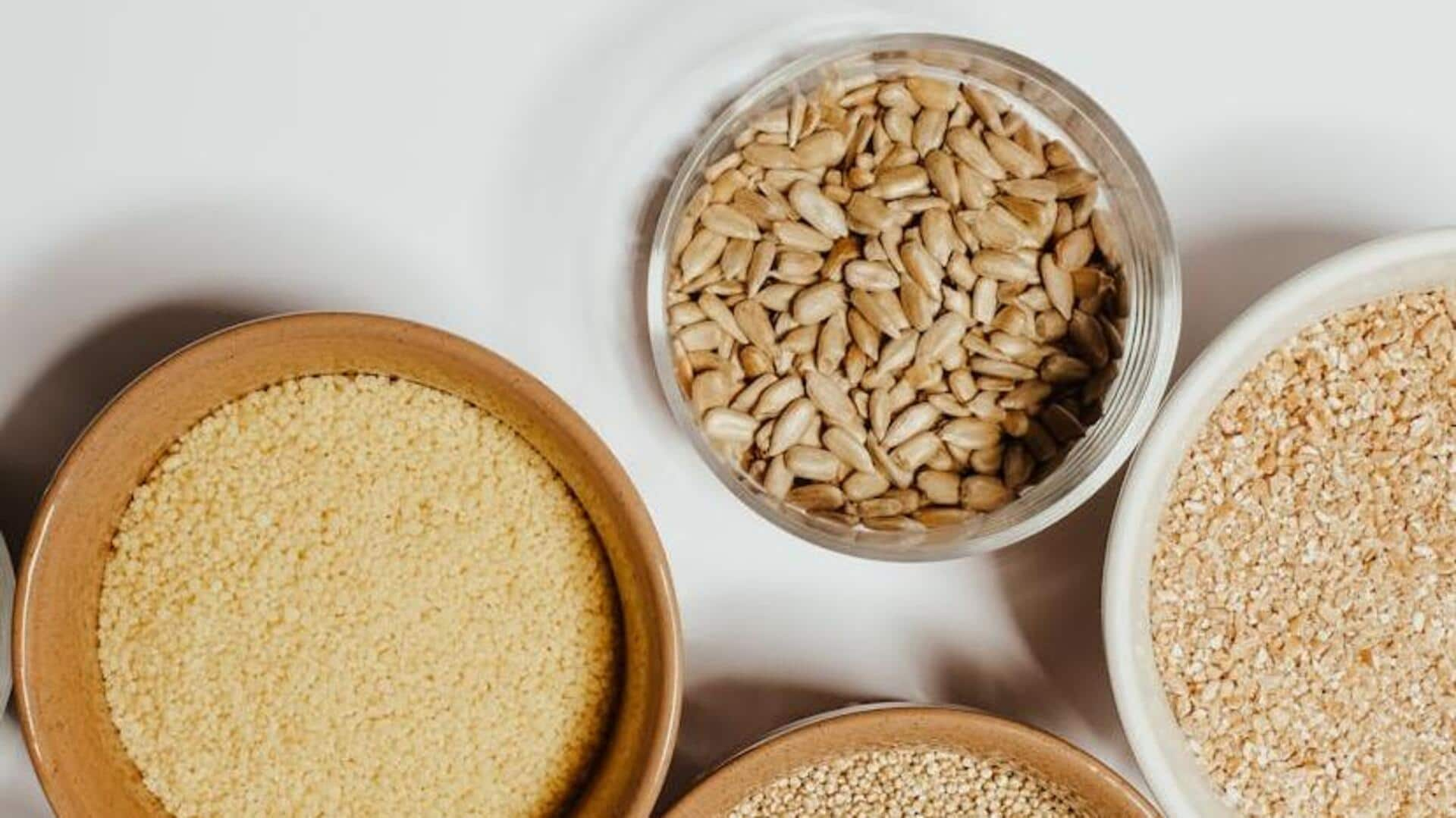
Millet v/s barley: Which is healthier?
What's the story
Millet and barley are two grains that have been staples in various cultures for centuries. Both are known for their nutritional benefits, but they differ in several aspects. Understanding these differences can help individuals make informed dietary choices. This article delves into the nutritional attributes of millet and barley. It compares their health benefits, fiber content, protein levels, and mineral presence. This provides a clearer picture of what each grain offers.
Health benefits
Health benefits of millet
Millet is packed with antioxidants, which are essential to keep the body away from oxidative stress. It also supports heart health by lowering cholesterol levels (due to its high fiber content). Millet is also gluten-free, making it an ideal food for people with gluten intolerance or celiac disease. Its low glycemic index also helps in keeping blood sugar levels under control.
Digestive aid
Barley's role in digestion
Barley is particularly known for its high soluble fiber content, especially beta-glucan. This fiber promotes the growth of good bacteria in the gut, which in turn aids digestion. This fiber type also helps regulate blood sugar levels and promotes heart health by lowering cholesterol absorption. Barley's power of improving bowel regularity makes it a great food for digestive health.
Protein levels
Protein content comparison
When it comes to protein content, millet offers a decent amount of protein for muscle repair and growth. However, barley has a bit more protein content than millet. Both grains provide essential amino acids, but should be paired with additional protein sources for a complete amino acid profile.
Mineral content
Mineral richness in grains
Both millet and barley are also rich in essential minerals such as magnesium and phosphorus, which aid bone health and energy production. Millet has higher iron levels than barley, making it a great option for people looking to increase their iron intake naturally. Meanwhile, barley offers more selenium than millet, which contributes to antioxidant defense systems in the body.